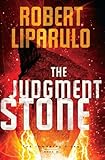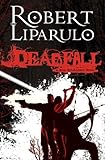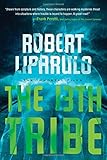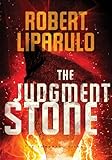|
Robert Liparulo interview with Susan Sleeman
|
|
December 13, 2006
Q: Let me start with asking you to share the highlights of your professional writing career including the story of how you came to be published? I got the bug to write in fifth grade. I wrote an article about watching the Concorde land at the airfield in the Azores Islands, where my dad was stationed. The article got picked up by the Air Force newspaper. That was it for me. A few years later, I read I Am Legend by Richard Matheson and realized I wanted to write fiction. As I got older, I fell into journalism and magazine writing as a way to make ends meet. Years later, I remembered the passion of my youth and started writing fiction again. A friend mentioned an editor looking for someone to write youth fiction, so I sent her some samples. The series they were working on fell through, but about a year later, she called to say she had liked my samples and would I be interested in submitting ideas for adult fiction. I did, and the samples became Comes a Horseman and Germ. Q: Your last two thrillers, Deadfall and Germ, are both based on events, that if they were true, would really impact our world and change our lives. How did you come up with these very creative plots? It’s just my twisted nature, I guess. Actually, I read a lot and my mind is always active. The combination can either drive you crazy or turn you into a storyteller. When I’m reading about something cutting edge-a new technology, a new strategy in war-I start thinking about what the next step would look like and how it would effect average people. I got the idea for Germ after reading a Psychology Today article about designer drugs. I thought, if they’re tinkering with DNA to make new drugs, why not do that with virus, make a new virus that does exactly what you want it to. In Germ’s case, that meant a virus that “looked” for a specific person’s DNA before becoming lethal. Q: One of the things I admire most about your books is the detail and research that must be behind the works to make them realistic. Tell us about how you research your topics. Most of my research ethic comes from having been an investigative reporter. I don’t mind doing the footwork, going to places to see how things work there; I don’t mind picking up the phone, finding someone with knowledge of whatever it is I’m researching, and asking him or her sometimes sensitive questions. Sometimes they say no, but it’s amazing how much people like to talk about their work, as I’m doing now. I tend to over-research; that is, I continue looking into subjects long after I found the specific fact I was looking for. By over-researching, I find those nuggets that ratchet up the cool factor, whether it’s how a government agency answers its phone or where Ebola hides when it’s not in a living host. Also, as I run across cool little factoids in magazines and newspapers, I clip them and use them in my stories later. Q: Another strong point and why your books resonate so well with me, is that you master the true concept behind a thriller, in that you find a scenario so unpalatable and perhaps unbelievable, and then not only make it believable but make me believe it could happen to me. How do you go about personalizing your work this way? Nothing matters unless it affects us as humans. The ozone layer’s thinning? How does that affect me? Or, how does that affect a child living on the other side of the world-it’s not about “me,” but about people, about compassion. With Comes a Horseman and Germ, I tried to take an idea with global consequences and focus on the people it’ll affect, either because they’re trying to stop it or because they’ll be directing influenced by the outcome. I’d like the reader to feel he or she knows these characters and cares what happens to them. In that way, something huge becomes something very intimate. With Deadfall, the stakes do have wide-reaching implications-that people will have the power to pick-off targets anywhere in the world at whim-but it’s an intimate story in that we follow just a few people who are fighting for their lives. By making these people just Average Joes-four or five men, a woman, and a child-I’m hoping every reader will find something in the characters they can relate to. That brings the adventure home, makes the characters’ victories, their struggles, the readers’ victories and struggles. Q: Your first chapters in both Germ and Deadfall, are shall we say, a bit gory. Have you had readers comment on this aspect of your work? And, are you afraid some might turn away because of it? I’m sure some people haven’t wanted to read past my first chapters, especially Germ’s, which describes an Ebola death. I spoke recently to a book club of middle-aged ladies. There was almost universal agreement that the first chapter of Germ had them questioning whether they wanted to continue. But all of them did and they all said they were glad for it, because they ended up really liking the story. Most of my stories don’t get much gorier than the first chapter. It’s kind of a warning to readers: If you don’t like the first few pages, you may want to stop now. But it doesn’t really get worse, either. A lot of thriller writers pull the reader in, lull them into the story, then hit them with insane, graphic violence. They’re going for the shock. I’d rather let people know upfront what they’re in for. The drawback is, I think my stories have a lot of heart in them. There are people you really care about, and people sacrificing themselves for others. My opening chapters hint at the violence and action, but not the heart. I haven’t found a way to get both in there upfront, yet; at least not with equal intensity. Q: What project are you working on now, and will I be afraid to read the first chapter of this one too, LOL? I’m on book two of a new young adult series called Dreamhouse Kings. And in fact the first chapter of the first book (the series will total six books) is pretty frightening. It depicts a woman being kidnapped by some unknown brute and being taken to some unknown place. It all starts to come together quickly, but that first chapter does set the tone. Again what it doesn’t do is show the hopefulness and unity of the family that the series is about. It shows the stakes, but not the strength of character that the characters have to find within themselves to overcome the problems they encounter. I should encourage the sites that want to post an excerpt to include two or three chapters, which would be more representative of the book. Q: I was excited to see that you are teaming up to write a screenplay. Could you tell us more about that venture? Of all the interest Hollywood has in my books, that one, which is not yet written and even untitled, is the most likely to hit the screens first. That’s because all the elements are in place: Mike Medavoy and Phoenix Pictures are the producers, along with director Andrew Davis (The Fugitive, The Guardian), and Andy working with me on the screenplay. We have some incredible actors in mind and I have no doubt Andy will land someone big, based on who he’s already worked with. It’s a dream project that came together the way only dream projects can: Mike Medavoy liked Comes a Horseman and asked what else I had in mind. I sold him on a political thriller. Then Andy, who worked with Mike on Holes, goes to him with a similar idea and Mike tells Andy, “Go talk to Bob, see if you guys can put something together.” So he did and we did. It’s going to be a killer novel and movie. Q: As I read both Germ and Deadfall, I could see both of them successfully hitting the bit screen. If Deadfall were to become a movie, who would you like to see playing Declan and Hutch? As I wrote Declan’s scenes, I started thinking of Stephen Dorff from Cold Creek Manor and World Trade Center. The guy plays cold well. Declan is steely, aloof, manipulative. I can see Dorff in that role. Hutch is a composite of several people I know, mostly my very good friend, Mark Nelson, who’s the game warden for Cheyenne. Since he’s not an actor, I guess I’d have to settle for someone else. Matt Damon, maybe. Q: How has being a published author differed from what you thought it would be? There’s a lot more time spent on marketing, publicity, book tours, signings, conferences, updating websites than I ever imagined. I like connecting personally with readers, but also love to write, and I have a lot less time to do that than I’d like. It’s a Catch-22: Now that I’ve had some success, I have more projects in the works than ever, but less time to do them. I guess it’s a good dilemma to be in. Q: How have you seen the CBA publishing world change lately and how do you see this change impacting both published and unpublished writers? The quality of fiction has improved vastly over the last five or ten years. There are fewer preachers writing and more true writers writing. By “preachers” I mean people with other jobs-in CBA that usually means something in the church. Nothing against them; it’s just that writing is secondary, almost a hobby to them. We needed people who cared passionately about telling stories, about communicating well. That’s starting to happen. For the unpublished writer, that means having to put your best foot forward like never before. The competition in stiffer, everybody’s pretty good. Have a solid idea of what field you want to work in-suspense, romance, whatever-and focus on that. Have at least three good ideas before you approach a publisher, but I’ve always thought the idea is less important than how you tell it. So make sure your proposal zings. On the flip side, publishers are willing to publish a broader spectrum of fiction: more fantasy, horror, drama about things that used to be taboo. That doesn’t mean morals have changed, just what we’re willing to discuss in public. So writers with a passion for some of the far-out stuff are much more likely to find a publisher, and they won’t have to adjust their vision to fit a perceived market as much. Q: What jobs have you had in the past and how do they influence your writing? I’ve been a writer most of my life, for over twenty years. Magazine writing taught me to write succinctly, to get a point across in as few words as possible (a lesson that may not be so apparent in this interview). It taught me the importance of researching well and meeting deadlines. Prior to that, I was an editor of an entertainment magazine. I learned how to edit text, write articles overnight when a writer dropped out at the last moment, and present a professional image. I was dealing with big celebrities and their handlers, and I was only 19, so professionalism was essential. Q: What authors do you love to read? I tend to read mainstream thriller authors, primarily: David Morrell, Lee Child, Thomas Perry, Richard Matheson, Stephen King, Dean Koontz, James Rollins, Tess Geritsen. Some mild-fantasy: Neil Gaiman, Tim Powers. These are authors I discovered years ago, when CBA wasn’t really competing in with mainstream in these fields. Recently, I’ve been getting into the new generation of suspense writers in CBA: TL Hines, Melanie Wells, Chris Well, Tim Downs, Ted Dekker, Mark Andrew Olsen, Bradilyn Collins. Not only are they writing suspense from a Christian perspective, they’re incredibly talented. I’m not sure that combination existed ten years ago. Q: Any up and coming suspense writers we should be watching for? Anyone who hasn’t tried the authors I just mentioned should at least give them a go. Also, Joe Hill (Heart Shaped Box), CJ Lyons (Lifelines), Matt Bronleewe. Honestly, I’ve been so busy writing, I haven’t been keeping up with the up-and-comers. Q: Have you ever had writer’s block and if so, how did you work through it? James Byron Huggins (The Reckoning, Sorcerer) once told me there was no such thing as writer’s block. When you feel unmotivated, you push through it. I thought he was being pretentious or cute or something other than totally honest. I’ve come to believe he’s right. Writer’s block is either lack of motivation to write at that moment, or it’s symptomatic of having not done your homework on the story you’re working on-maybe you don’t know your characters enough or aren’t sure what story you’re wanting to tell. When the words aren’t coming, I focus intensely on the characters. I try to understand what they would do next. They have to do something. They don’t have the luxury of waiting while I fiddle around with “writer’s block.” In my stories, usually someone is after them or they’re trying to save someone’s life. They can’t just sit there, so neither can I. Q: What kind of writing schedule do you maintain? I tend to write in two- or three-month chunks. During this time, all I do is write: from about 10 in the morning to five in the afternoon, then again from about 10 in the evening to one or two A.M. I disconnect my office phone and stay off-line. I return calls and emails once a week, usually on Saturdays. When I’m not in this writing-crunch mode, I do research, plan, outline, do some marketing or traveling. I’ve found that I work much better when I can immerse myself in a story for long periods, without interruption. Q: What advice would you give an aspiring unpublished writer? Neil Gaiman said it best: “Finish stuff. Get it done.” The single biggest stumbling block I’ve seen for new writers is not finishing. They have five manuscripts in a drawer, all in various stages of completion. Get it done, send it out, start the next one. Rinse and repeat. Q: What do you see as the greatest obstacle to becoming published today? Writers trying to jump on one bandwagon or another, rewriting whatever story was the last big thing. Write your own thing. Copy no-one. I think it was the director John Milius who said the only person he’s ever heard of who can predict the market was Steven Spielberg. If your not Spielberg, don’t try it. By the time you get it done, it’s old news. The other things writers must do is find their own voice. Forget the gurus who tell you how to write. Just write. Good or bad, what comes out is yours. That’s what your selling: your voice, not what other people say is “proper” writing. Being unique is the writer’s best weapon and you can’t get that from a teacher, mentor, or book. Q: Anything else you would like to tell our readers? I’ve had a lot of young people read my books, even though I meant them for adults. I’ve spoken to quite a few junior high reading groups. It’s amazing how astute these kids are. But any young person who wants to give my writing a try, but may feel the current stuff is too edgy, could watch for a new young adult series I’m working on now. The series is called Dreamhouse Kings. The first two books, House of Dark Shadows and Watcher in the Woods, will be out in July. And if your readers get around to picking up Deadfall, I’d love to hear their thoughts about it. They can email we through my website: www.robertliparulo.com. While you’re there, register to win an iPod Nano-preloaded with the unabridged audio recording of Deadfall. Thanks for the great questions! |
Warning: getimagesize(https://www.thesuspensezone.com/wp-content/uploads/2014/08/susanamazon-200×300.png): failed to open stream: HTTP request failed! HTTP/1.1 406 Not Acceptable
in /home/susans16/thesuspensezone.com/xxss_class/Utils.class.php on line 849
Warning: Division by zero in /home/susans16/thesuspensezone.com/xxss_class/Utils.class.php on line 856

 Former journalist Robert Liparulo is the best-selling author of the thrillers Comes a Horseman, Germ, Deadfall, Deadlock, and The 13th Tribe, as well as The Dreamhouse Kings, an action-adventure series for young adults. He contributed a short story to James Patterson’s Thriller, and an essay about Thomas Perry’s The Butcher’s Boy to Thrillers: 100 Must Reads, edited by David Morrell and Hank Wagner. He is currently working on the sequel to The 13th Tribe, as well writing an original screenplay with director Andrew Davis (The Fugitive).
Former journalist Robert Liparulo is the best-selling author of the thrillers Comes a Horseman, Germ, Deadfall, Deadlock, and The 13th Tribe, as well as The Dreamhouse Kings, an action-adventure series for young adults. He contributed a short story to James Patterson’s Thriller, and an essay about Thomas Perry’s The Butcher’s Boy to Thrillers: 100 Must Reads, edited by David Morrell and Hank Wagner. He is currently working on the sequel to The 13th Tribe, as well writing an original screenplay with director Andrew Davis (The Fugitive).
When not writing, Liparulo loves to read, watch (and analyze) movies, scuba dive, swim, hike, and travel. He lives in Colorado with his wife Jodi and four children: Melanie, Matthew, Anthony, and Isabella.













 Interview with Robert Liparulo by Susan Sleeman
Interview with Robert Liparulo by Susan Sleeman
Leave a Reply